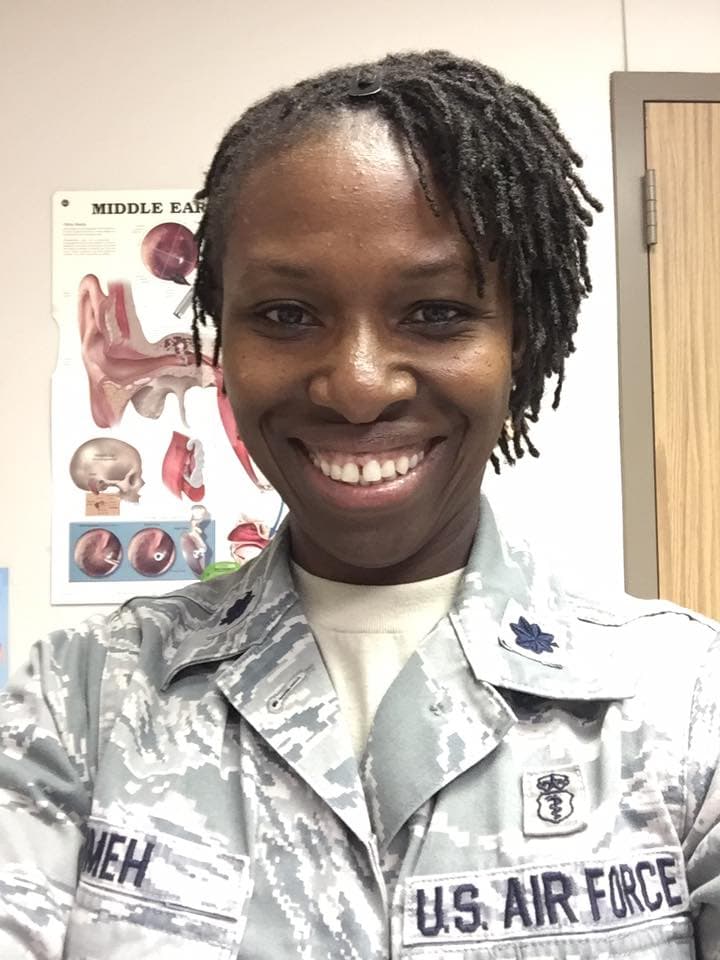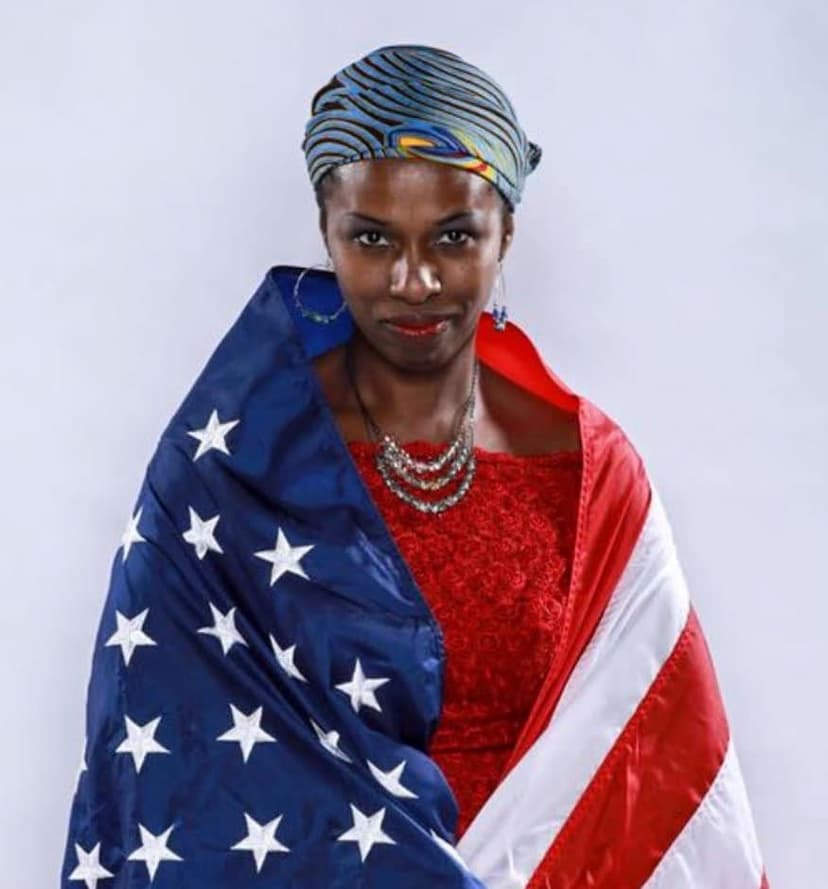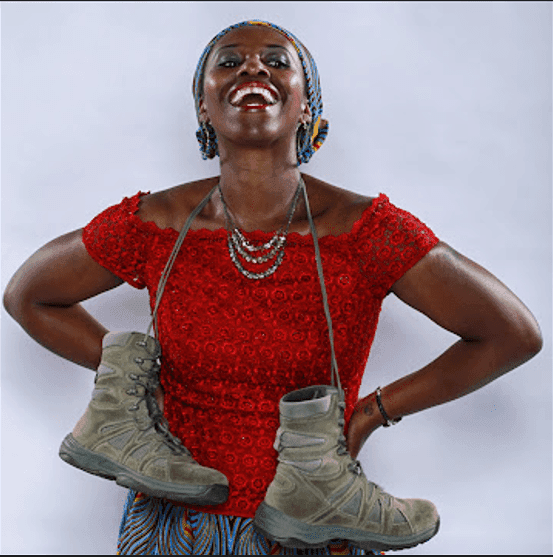Dr. Uchenna Umeh, MD, MBA, FAAP, CLC, also known as Dr. Lulu, is a Nigerian-born pediatrician, author, speaker, and passionate advocate for LGBTQ+ youth and families. As a former U.S. Air Force lieutenant colonel and commander, she brings leadership and lived experience to her work, inspired in part by her role as the mother of a transgender daughter. Dr. Lulu is the founder of Dr. Lulu's Angels Haven, a nonprofit organization that supports unhoused LGBTQ+ youth, and serves as a workshop facilitator for Gender Illumination. She hosts the Moms 4 Trans Kids Podcast and is a three-time TEDx speaker, adjunct professor, and published author—including the anticipated "About Your Black Transgender Child."
Her first book, "How to Raise Well-Rounded Children," debuted at #1 on Amazon’s Hot New Releases in Parenting and holds a 5-star rating from Readers' Favorites. Her follow-up, "A Teen's Life," which explores teen struggles, is available in Texas public libraries and schools. Her most recent book, "How to Teach Your Children About Racism," began as a viral blog and also reached #1 in three Amazon categories, earning another 5-star review from Readers' Favorites. Based in Atlanta, Georgia, Dr. Lulu is dedicated to mental health, gender affirmation, and health equity for marginalized communities. Dr. Lulu's connection to Washington, D.C. is foundational—she attended Howard University for her residency and considers the city her first home in America.
Alesha Alexcee: Can you tell me about your background, where you're from, and what made you want to enlist in the military?
Dr. Lulu: I'm Nigerian. I joined the military because I had just gotten divorced from my ex-husband and wanted to do something different. I sold my practice, and before that, I asked my kids what they thought. They asked, "Mom, what do you want to do?" I said I didn't know. I had a private practice and was just tired, probably burned out.
We looked into which branches of the military were still recruiting at my age. I was 42 and did what they called a direct accession. I was happy to join the Air Force because I didn't really want to join the Army. I had two months before I turned 42, but I didn't know that until the recruiter called and said, "We can still get you in; you've got two more months." I agreed.
Because I’m a physician, I entered as a direct accession into the medical corps and came in as a lieutenant colonel. I had just come from Charlotte, North Carolina, and after my swearing in, I became a commander overnight. We had about eight weeks of officer training school, where I became the commander by default since I was the highest-ranking officer there. I essentially came from civilian life straight into a leadership role in the military.

Dr. Lulu in uniform
AA: Wow, so you were already in a leadership position from the start. Was that intimidating, or was there a learning curve? What was your experience like?
Dr. Lulu: There will always be a learning curve. I didn’t know what I didn’t know. While I wasn’t new to leadership—I had owned my own practice for 13 years with 13 employees and 6,000 patients—I had never been in the Air Force before. It was challenging because it was new for me, but as a Nigerian, I’m not easily shaken. Ultimately, it was a good experience. I served for four years and attended Air War College, training to become a full colonel, but I didn’t want to stay in the military. My body didn’t agree with military life, so I left after my first term. I didn’t like sending people to war; I wanted to see patients, but they wanted me in leadership and meetings all day, which wasn’t for me.
AA: And, correct me if I'm wrong, but you identify as queer, right?
Dr. Lulu: Bisexual.
AA: Bisexual, okay, okay. And, were you out when you were in active duty?
Dr. Lulu: Yes, I was out during active duty. I was married to my ex-wife at the time. We got married after marriage equality was established under Obama. I divorced my ex-husband in 2009, turned 40 that year, and joined the Air Force at 42. I met my ex-wife the year before joining. So, I never experienced 'don’t ask, don’t tell.
AA: Yes. So, was it easy to transition out of service because you were there for, like, a short period of time? What was the transition out of the Air Force like for you?
Dr. Lulu: It was easy because I only served four years, not 21 or more. It was mostly paperwork, turning in documents at different places. I did what I needed to do, received my honorable discharge, and that was it. It wasn’t a big deal for me.
AA: What is your connection to Washington, D.C.? Were you stationed there, or do you have another connection to the city?
Dr. Lulu: I went to Howard University when I first came to the U.S., attending school at Howard University Hospital. I stayed there until after my first child was born.
I was still in D.C. when I completed my residency at Howard, and after my first child was born, we moved to the Carolinas. Because I was coming in as a senior officer, I had to return to D.C. for my swearing-in and other official matters at Andrews Air Force Base. My main connection to D.C. is that it was my first home in the U.S.; my first three years were there as a resident, and after my baby was born, in my fourth or fifth year. Then we moved to the Carolinas. I spent the first five years of my life in America.

Photo courtesy of Dr. Lulu
AA: When you were attending Howard University, were you out then? And if so, did you participate in any DC-related Black Pride events?
Dr. Lulu: Not while I was at Howard, no. I had just come for my residency, and if you know anything about residency programs, you barely have time to eat lunch, let alone participate in events. Now, I do those things because I have more freedom. I’m retired as a physician, and I’m a life coach, speaker, and author. Back then, it wasn’t possible. Also, I’m pansexual and have always been out to myself, even if not publicly. For me, there’s a difference between being out to the world and being true to yourself.
I don’t use the word 'out'; I prefer 'inviting in,' which I discuss in my second TEDx talk. We don’t have to come out to anyone; if someone feels safe, we can invite them in. I’ve always been myself and was open with my ex-husband about liking both men and women. When I was a resident from 1995 to 98, I didn’t have time for anything outside of work. My first child was born in 1999, after I finished residency. Residency was so demanding. I was on call every third night for three years.
Alesha Alexcee: Yeah, now that you're out of the Air Force, and you have had some time to reflect. I would like to inquire about current developments at the federal level. So, how have the constant developments in federal policy influenced your feelings toward or against your military service?
Dr. Lulu: Honestly, no. My training and time in the military are separate from what's happening today. It’s just the way the world is right now. Do I have empathy for the people who are in service right now? Yes. And I choose empathy as opposed to compassion, because even though compassion is a better word than empathy. Compassion is empathy, plus how can I help you? And I just can't help them right now, because they are bound by the contract and are staying.
I feel sorry for them, I feel for them, right? You can't really do much about it, because you took an oath to serve, and so you'll serve. Do I like what is happening? No. My kid is transgender in today's America. Of course, I don't like what's happening. But I can't hate it more than my own child who says, Mom, it is what it is. Take her own cue. Her own cue, she said, 'Mom, it's fine; it just is what it is.' It doesn't mean I'm going to stop doing the work that I do, but it means that my child is dealing with it, so my job is to support her the way I can.

Photo courtesy of Dr. Lulu
AA: If you had any advice for Black queer service members or transitioning veterans, what would it be?
Dr. Lulu: My advice is to keep your head up. If a place becomes too toxic, leave. That's truly it. You get to decide, you get to choose your suffering. You get to choose your brand of suffering. So, if you like it and it's working for you, stay on; if you don't like it, leave. If there's something that you're there to accomplish, then stay. I mean, once I became a coach, I realized that advice doesn't work, especially unsolicited advice. As a coach, I never advise my clients. I ask them, What do you think you should do? Like, what would you have control over? Maybe that's my advice, let them ask themselves, what do they have control over?
AA: As a Black LGBTQ service member or veteran with ties to DC, what are your hopes and dreams for the future, whether for yourself? Those in your communities, the military, youth, etc.
Dr. Lulu: I think I want the best for D.C. I really call D.C. my first home. I want them to stop being occupied, if that's the situation, according to what the news is saying. I want the best for them, like, I want the best for a very good friend. I want the city to stand. I want them to get their statehood, because that's what they want. I want whatever they want.
This interview was conducted by Alesha Alexcee, digital issue co-editor, a Black and queer, non-binary strategic storyteller, policy advocate, and consultant residing in St. Paul, MN.













